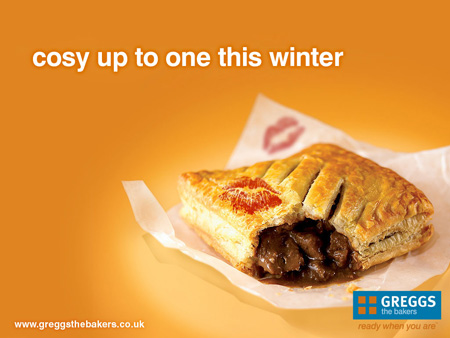Investment Diversification
Investment Diversification has often been cited as “the only free lunch in investment”. We must diversify and spread our investments. Increased safety is achieved by not having all of your eggs in one basket. Simple stuff. The statement however leads us to two questions.
Question 1: How many baskets do I need to be safe?
Not as many as you might think is the short answer. Around 20 baskets will suffice. Many investment funds or managed portfolios hold an enormous amount of individual investments. My theory is that the big named companies want to justify their amazing investment proposition by making it look very complex and impressive. A multi-page investment statement issued twice annually looks rather grand compared with just a couple of hands full of funds. But what diversification benefit remains after you hold 20 baskets? Here’s the maths.
- With all of your eggs in 1 dropped basket, you lose everything.
- With 2 baskets, you could drop one and still keep 50% of your eggs.
and so on…
[wpdatachart id=4]
You can see what is happening, each time we add a basket we are not reducing our risk by as much as the previous time we added a basket. If we could carry 20 baskets, we still keep 95% of our eggs if we dropped one basket. If we could carry 40 baskets, we would keep 97.5% of our eggs if we dropped one basket. If you ask me, I’m more likely to drop a basket if I’m trying to carry too many in the first place. So it’s the law of diminishing returns in play here. Around twenty is plenty. Holding too many isn’t diversification, it’s probably diworsification.
Question 2: What should I put in my baskets?
This is where I get to talk about correlation. Positive Correlation, Negative Correlation & Non-Correlatation. Let’s stick with eggs to begin with.
As well as having many baskets holding our eggs, we must not hold just eggs alone. Let me explain. Put an egg in a pan of boiling water for 10 minutes and we get a hard boiled egg. Yum! Put a duck egg in the same pan; same outcome, just another hard boiled egg. So all eggs are positively correlated. We get the same outcome when we boil them. Put a bread roll in a pan of boiling water though, and we simply destroy the bread roll. Yuk! It won’t go harder it will do the opposite, it will go softer. Therefore the bread roll is negatively correlated to the egg when dunked in boiling water. One is yum , the other is yuk.
In investment terms if yum is up and yuk is down, then a 50/50 split of eggs and bread rolls gets us nowhere. We end both 50% higher and 50% lower = no change. We want to group together things that just don’t react together, either in lock-step upwards nor in absolutely the opposite direction. Useful diversification only comes about when all the constituents of the investment portfolio each do their own thing independently of each other.
So you’ve met the egg and the bread roll, say hello to the commando of the boiling pan world. Enter the hot dog sausage. Out of the tin he is cold, out of the boiling water he is hot. Either way the heat hasn’t changed him. “Dunk me again! I can take it”. He’s become neither harder like an egg or softer like a bread roll. So this is it. This is true non-correlation to boiling water. The egg will change, the bread roll will change, the hot dog won’t.
Is this useful or am I just mad?
In investment terms the pan of boiling water is any political or economic event that is set to change the outlook for investments. China’s growing up problems, OPEC’s collapse, the US threatening to increase interest rates for 10 years, Grexit, Brexit, ISIS, debt crisis, drought, mass migration……
All global shares are correlated to some extent. Whatever boils the water it causes one of two outcomes. Yum or Yuk. So you can’t achieve diversification just by owning shares, even if some are in the UK, some are in the US and some are in Japan. They still may all fall together. Forget diversification by Geography. Shares know no political boundaries anymore now that companies are global. A fall in Chinese domestic spending will directly impact on the future profits of many a US company.
Our current diversification hero
To keep on the food theme, I have cast the hero of the day as the humble Gregg’s Steak Bake. (Sorry to you veggies). Absolutely useless in a pan of boiling water by the way, please don’t try that at home.
Small shares don’t react to many global events like large shares do. Small company profits are usually created locally not globally. You don’t get more local than Gregg’s the bakers or Domino’s pizza or Dignity Funeral Services. For 12 months now everyone has had a bit more jangle left in their pocket, caused by the savings obtained at the fuel pump.
Consider a typical scene.
- Monday lunchtime 12:30pm, 1000 white van men buy a steak bake.
- Monday evening news 6:00pm. “Stockmarket’s around the world fall in unison as billions are wiped off China’s stock market in investor panic.”
- Tuesday lunchtime 12:30pm, 1000 white van men buy another steak bake.
- Meanwhile Gregg’s share price changes not one jot to the global events
The FTSE 100
As you know this year has been a stinker for the FTSE 100. It started the year at 6547 points but currently lies at just around 6150 points. Still almost 6% down on the year. But why? UK businesses seem to be doing very well; pubs, restaurants and shops are all busy. Well two reasons for the FTSE fall. The bigger boys in the index who make up the majority of it are international firms and the smaller ones don’t count as much as the larger ones. The bigger the company – the bigger the slice of the FTSE 100. Overall 80% of the earnings of the FTSE 100 now are generated overseas. The FTSE 100 is not a barometer of how the UK is doing, more of how the world overall is doing. The largest climbers within the FTSE 100 this year were Taylor Wimpey and Barratts, both making their profits mainly in the UK.
In a previous blog, Big isn’t best, I discussed my tactical strategy of introducing smaller shares into our portfolios last April and I’m pleased to say that relative to the FTSE 100 the changes have saved our bacon. I’m hoping our January Investment Review will reveal the fruits of our labour.
Diversification when done properly is the only free lunch in Investment. Steak Bake anyone?

